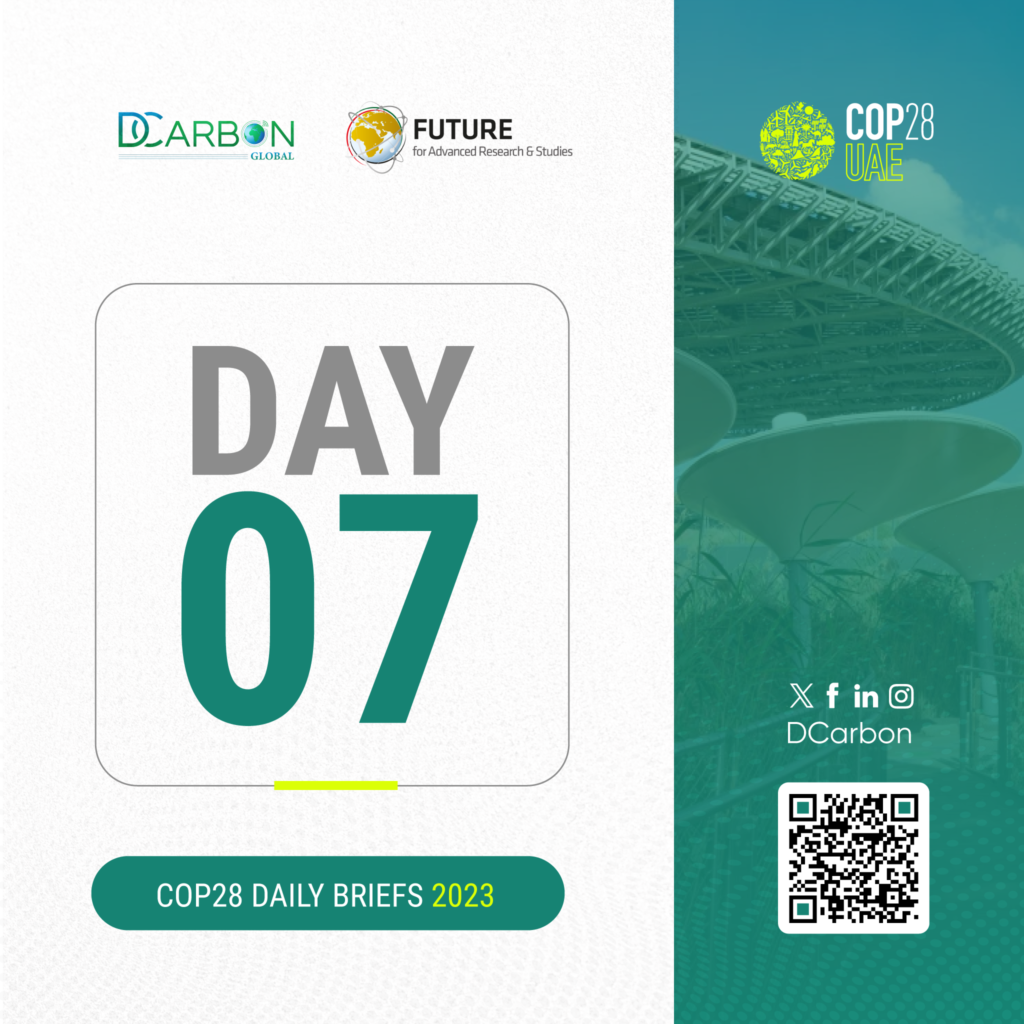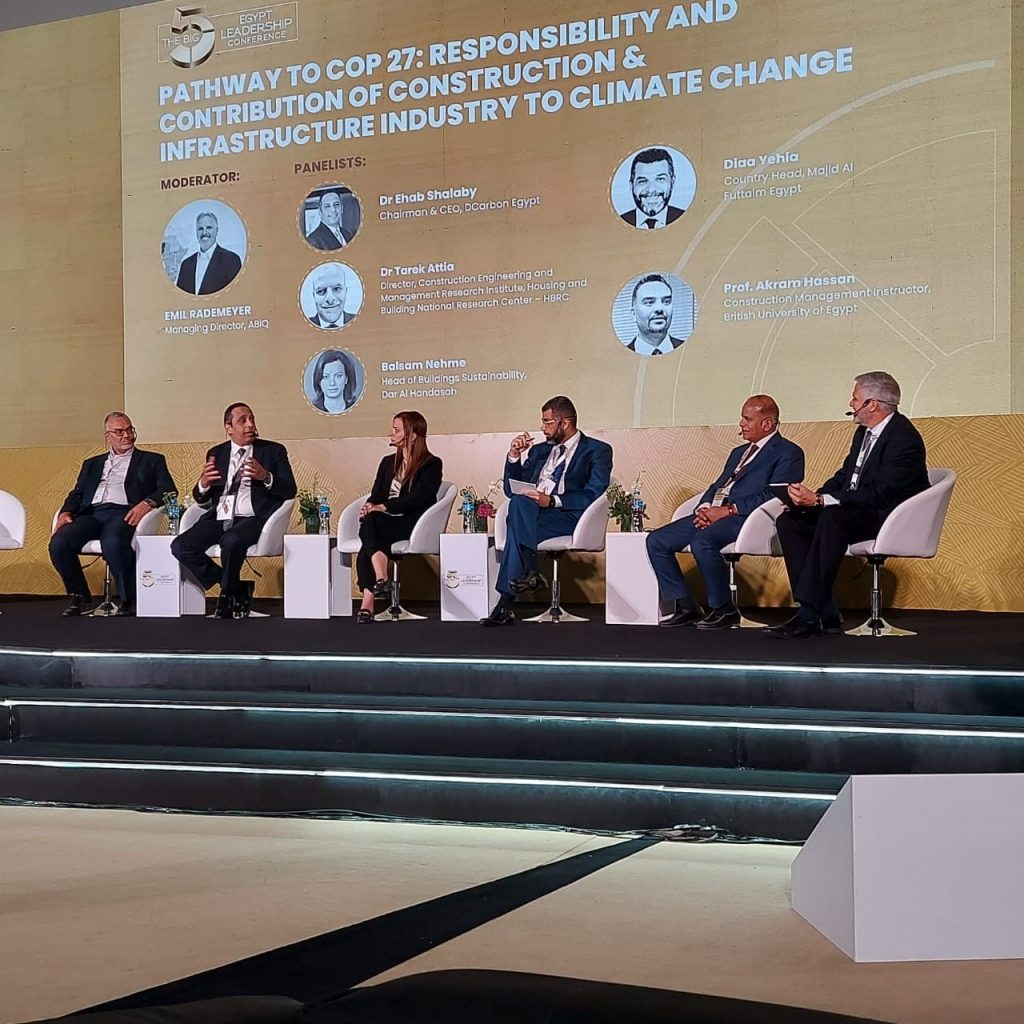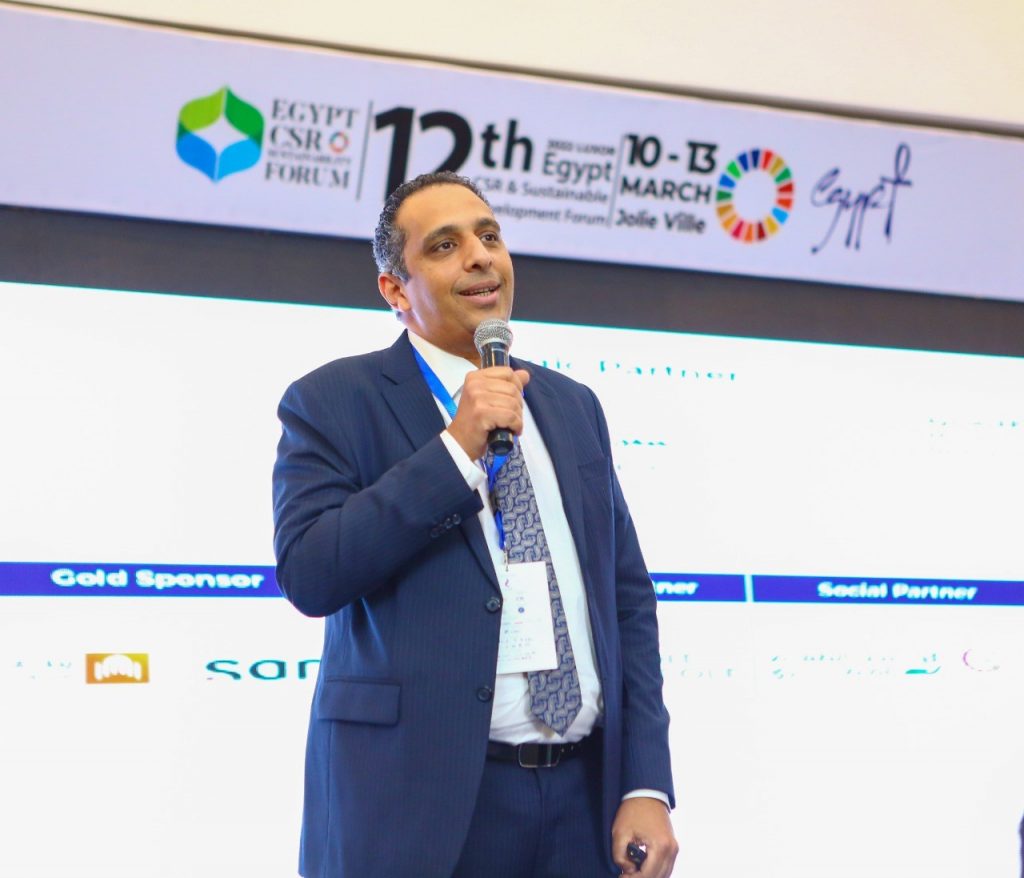Blue Zone
Highlights:-
COP 28 Rolls on With Doubts and Commitments
• Sultan Ahmed al Jaber, the oil executive and Emirati politician presiding over the 28th Conference of the Parties (COP28) climate summit, said, there is no science that the phase out of fossil fuels is going to achieve 1.5 Degrees C—the goal of the Paris accord and these meetings. John Kerry, the U.S. climate envoy, dismissed his statement as out of touch with the latest scientific research, despite little evidence to the contrary. COP 28 started on November 30 and will continue through December 12 with 70,000 attendees from 200 countries in Dubai, United Arab Emirates.
• Fifty oil companies, representing 40 percent of global oil production, pledged to cap methane emissions from oil and gas operations. They agreed to end routine flaring and achieve net-zero scope 1 and 2 methane emissions by 2050 and near-zero carbon emissions by 2030 as part of the Oil and Gas Decarbonization Charter, an initiative led by COP President Sultan al-Jaber.
• The Biden Administration announced regulations that will require energy companies to detect and fix methane leaks from their operations—requirements that are the strictest in the world.
• 118 governments, including the United States and the European Union, committed to tripling the world’s renewable energy capacity by 2030 despite its higher cost from inflation, high interest rates and supply chain issues, including market dominance by China. China and India, however, did not sign the pledge.
• More than 20 countries, including the United States, Britain and South Korea, pledged to triple nuclear energy capacity by 2050, calling it important to reducing carbon emissions. The cost of building nuclear power plants has increased because of high interest rates and inflation, forcing some developers to pull out of proposed projects.
• Artificial intelligence is playing a prominent role at COP28, with providers marketing their technology as ways to help countries achieve their emissions goals, despite A.I.’s potential to consume large amounts of energy.
• John Kerry said that coal-fired power plants should no longer be permitted and committed the United States to phasing out existing coal plants. China is approving new coal power plants at a rapid rate, as is India.
Cop 28 Summit: Secures $83 Billion In Climate Pledges, India Skips Energy and Health Pledges
COP28’s first week marked key progress: activating the Loss and Damage Fund, securing over $83 billion in pledges, and proposing a groundbreaking shift—phasing out all fossil fuels. Yet, doubts persist about commitment sincerity and fulfillment by participating nations. India’s reservations on fossil fuel phase-out stirred debate, skipping commitments on renewable energy and health declarations. Significant strides included $726 million for Loss and Damage, boosting the Green Climate Fund to $12.8 billion, and contributions to various climate funds. UAE’s commitments for vulnerable countries and financial institutions pledging over $22.6 billion spotlight collective action for climate causes.
$700m Pledged to Loss and Damage Fund at Cop28 Covers Less Than 0.2% Needed
Wealthy countries most responsible for the climate emergency have so far pledged a combined total of just over $700m (£556m) to the loss and damage fund – the equivalent of less than 0.2% of the irreversible economic and non-economic losses developing countries are facing from global heating every year.
In a historic move, the loss and damage fund was agreed at the opening plenary of the first day the Cop28 summit in Dubai – a hard-won victory by developing countries that they hoped would signal a commitment by the developed, polluting nations to finally provide financial support for some of the destruction already under way.
But so far pledges have fallen far short of what is needed, with the loss and damage in developing countries estimated by one non-governmental organization to be greater than $400bn a year – and rising. Estimates for the annual cost of the damage have varied from $100bn-$580bn.
The $100m pledge by the United Arab Emirates, the Cop28 host country, was matched by Germany – and then slightly topped by Italy and France, which both promised $108m. The US, which is historically the worst greenhouse gas emitter – and the largest producer of oil and gas this year – has so far pledged just $17.5m, while Japan, the third largest economy behind the US and China, has offered $10m.
A Ministerial Meeting on Urbanization and Climate change
The COP28 presidency, along with UN-Habitat and Bloomberg Philanthropies, led a ministerial meeting on urbanization and climate change. This resulted in a ‘Joint Outcome Statement’ supported by numerous national ministers, outlining a 10-point plan to integrate climate action into different government levels and ensure adequate adaptation finance for cities. Highlighting the vulnerability of cities to climate impacts, with 90% facing threats from rising sea levels and extreme temperatures, COP28 President Sultan Al Jaber stresses empowering cities on the frontline. The involvement of 450 mayors and governors at COP28 is pivotal, tapping into their local insights to shape global solutions. Given cities’ significant contribution to CO2 emissions, their resilience against climate challenges is crucial; investment in redesigning urban spaces is vital for decarbonization and resilience against floods, heatwaves, and droughts. Increased funding would greatly aid cities in this transformative process.
World’s 10 Largest Concrete and Cement Companies Unite to Decarbonize
Cemex and Holcim, key players in the cement industry, join forces in a new strategy aiming for net zero emissions within 25 years. Responsible for 8% of global CO2 emissions—exceeding aviation and shipping combined—their partnership with experts introduces a groundbreaking net zero plan backed by detailed economic modeling. Urgency is stressed by the CEO of Mission Possible Partnership, emphasizing the need for immediate collaboration across the industry, design, construction, government, and finance sectors to make tangible progress towards a zero-carbon future for concrete and cement.
Green Zone
Wednesday Dec. 6th, was Urbanization and Transport Day at COP28, focusing on sustainable solutions for healthier, more vibrant, and less polluted cities for all. Urban areas are major contributors to climate change, accounting for 71-76% of CO2 emissions from global final energy use. By 2050, there may be three to four times as many passenger-kilometers travelled as in the year 2000 (UN Habitat). The day exhibited an array of discussions and panels involving the development of Urbanization and Transport towards a more sustainable and climate-safe world.
Financing The Transition to Decarbonization
Banks sustainability leaders and sector experts convened to explore avenues for strengthening sustainable finance products. Facilitated in collaboration with the United Nations’ High-Level Climate Champions Team, represented by Alida Saleh, the discussion featured prominent figures such as Shargiil Bashir, the EVP & Chief Sustainability Officer of the First Abu Dhabi Bank (FAB), and Guy Grainger, JLL’s Global Head of Sustainability and ESG Services. Additional insights were provided by Nader Aboushadi, Sidara Group Treasurer, and Balsam Nehme, Head of Sustainability at Dar.
The event underscored the pivotal role banks play in facilitating sustainable finance for the transition to decarbonization. Shargiil Bashir emphasized the heightened responsibility of banks in climate action, emphasizing their position as the primary source of funding for various sectors. Bashir highlighted the evolving perspective within the banking sector, shifting from a focus on repayment timelines to a more nuanced inquiry into the purpose and impact of funds. Specifically, discussed how banks are now concerned not only with “when are you going to pay us back” but also with “what are you going to use it for.”
The discussion delved into critical aspects such as the challenge of greenwashing and the importance of incubators in supporting enterprises on their sustainable journeys. Bashir further articulated the dual role of banks in fostering awareness and providing financial incentives for large corporations to utilize funding in sustainable and environmentally responsible ways. The event served as a platform for key stakeholders to exchange ideas and strategies, emphasizing the collaborative effort required to drive meaningful change in the realm of sustainable finance.
Transportation Transformed
Transportation emissions constitute a significant portion of the decarbonization challenge and, in many regions, have proven resistant to reduction efforts. However, viable solutions exist. This panel featured industry experts addressing the hurdles within the transportation sector on the path to adopting clean fuel and energy. The conversation delved into effective solutions and actionable measures aimed at transforming the transportation sector.
Central insights revealed challenges unique to the MENA region, including a predominant dependence on private transportation over public options and inadequately prepared infrastructure for electric vehicles, impeding the transition to clean transportation. The discussion also underscored the importance of government incentives in addressing these challenges.
Sustainable Fashion Show
On the 7th day of COP28, the world witnesses the first ever fashion show at COP. The event showcases not the usual trash-to-fashion creations but creations that are wearable and accessible by everyone by collectively action-focused brands who are committed to achieving one goal: climate change and sustainability in the industry. The show features renowned designers like Stella McCartney and Demobaza, showcasing sustainable collections. The show signifies the importance of the fashion industry in the journey towards a sustainable and climate-friendly world.
Food Shortages and Major Cities Flooding: The Tipping Points That Could Endanger Us All
According to the Global Tipping Points report recently released, the world is on the brink of surpassing five tipping points. The lead author of the report, Professor Tim Lenton from the University of Exeter, spoke of the crisis the world is facing as he said “Right now, even at 1.2°C of global warming, we’re running a significant risk of some fast-tipping points, including we’re seeing the loss of coral reefs, which 500 million people depend on for their livelihoods. We’re also running a risk of a tipping point in the North Atlantic circulation that within a decade could make the climate far more seasonal in the UK and Western Europe, thus reducing the growing season of major crops by two months or more. In simple terms, precipitating a food and water security crisis whilst at the same time raising the sea level on the northeast seaboard of America. So, Boston and New York, for example, by ten or tens of centimeters, posing a serious challenge if we have another storm”.
Dr Manjana Milkoreit, co-author, University of Oslo, added “We do observe that applies not just to the broader public, but also to decision makers. So, some of our research is very limited to what decision makers actually know about tipping points. But what we do know is that it’s significantly lagging behind the knowledge we have in the sciences itself.” Milkoreit emphasized the importance of communication and engagement with decision makers to inform and support the right choice.
The key messages from the report focused on Environmental stresses and threats, and the need for more global governance measures to address the different drivers, potentially rapid changes, and impacts of tipping points.
Launch of a New Aviation Sector Tool to Measure Sustainable Fuels’ Impact
The aviation sector is introduced with a new tool, the Sustainable Aviation Fuel Certificates registry (SAFc), developed by an alliance that includes United Airlines Holdings Inc. and other carriers, corporate customers like Microsoft Corp. and the Environmental Defense Fund. The tool is aimed at promoting the use of cleaner fuels and tracking their impact. “We think it’s the best in class,” said Laura Hutchinson, aviation manager for climate-aligned industries at RMI, a Boulder, Colorado-based non-profit formerly known as the Rocky Mountain Institute. “We provide an unprecedented level of transparency to the users and the public.”
The registry functions as a documentation system with dual objectives. Firstly, it monitors the entire life cycle of sustainable aviation fuels, tracking their production, distribution, and utilization to provide a precise assessment of their emissions impact in comparison to conventional jet fuels. Secondly, it aims to promote the adoption of SAFs by generating certificates independent of the physical fuel itself, especially considering its limited availability at the majority of airports.
Climate Action Innovation Zone
Highlighted Quotes by the Climate Action Innovation Zone on LinkedIn
• Nigel topping, CMG, Global Ambassador, UN High Level Climate Champions: “Once you get behind the curve, it’s almost impossible to catch up.”
• Marvin Rees, Mayor of Bristol City Council: “The country does not work in a way that in Westminster, they pull a lever and get outcomes in actual places, the technology has to be deployed in actual places. If it’s going to have an impact you have to be talking about place based leadership.”
• Lisa Roberts, President and Vice-Chancellor, University of Exeter: “We have a team of people working on the problems, absolutely focused on the solutions now. We have teams to help get the funding necessary. We’re here. We’re ready to take action.”
• A stark warning from Dr. Richard Mattison, Vice Chair of S&P Global Sustainable1 at the Sustainable Finance Forum: “Climate change could result in an average of 4.4% annual losses to GDP by 2050 […] in the US economy alone, climate disasters creating $1bn of damages take place every three weeks
• Hon. Steven Victor, Minister for the Ministry of Agriculture, Fisheries, and the Environment: “This is the challenge for the youth. How do we distil the right information and how do we better inform ourselves in taking action and looking at issues?”
The Sustainable Finance Forum
On December 6, the Sustainable Finance Forum unfolded within the Climate Action zone. Hosted by Climate Action, the Principles for Responsible Investment (PRI), and UN Environment Programme Finance Initiative (UNEP FI), this event stands out as one of the significant finance sector gatherings held alongside COP28. Serving as a crucial platform for open dialogue within the finance sector, the event provided 400 participants with the opportunity to strengthen collaboration, facilitate dialogue, promote clear standards, and drive sustainable practices across asset classes and portfolios. During the event, the PRI and UNEP FI facilitated discussions with banks, insurers, and investors, focusing on decarbonization and pioneering efforts related to nature and biodiversity, adaptation, the Just Transition, as well as presenting leading research and best practices for identifying, measuring, disclosing, and managing sustainability risks in the financial sector. The overarching goal of the forum is to align sustainable finance with the real economy and facilitate a just transition to a net-zero, nature-positive global economy.
Unlocking a Retrofit Revolution: Policy, Finance and Regulation
The panel discussed the significant role of the built environment, responsible for nearly 40% of global carbon emissions, in the effort to mitigate the climate crisis. Green real estate emerges as an unequivocal solution and a top priority for future investments. Unsustainable buildings are now deemed less desirable and face challenges in securing financing, prompting a growing demand for new or retrofitted structures. From major institutional investors to individual homeowners, there is a noticeable shift in interest towards sustainable real estate, recognizing the opportunities it offers to capitalize on and future-proof assets. This session featured insights from thought leaders in international NGOs and the banking industry, sharing experiences and perspectives on the global decarbonization of residential real estate. Topics covered included the importance of the built environment, existing challenges, and policy barriers, as well as key enablers that could trigger a retrofit revolution. The discussion also explored ways in which the banking and financial services sector can collaborate with governments to ensure the success of such initiatives.
Unleashing Essential Commercialization: Converting Sustainability Research into Impact
This panel addressed the crucial role of emerging technologies in mitigating the risks of climate change, striving to maintain the planet within the recommended 1.5°C warming limit by the Intergovernmental Panel on Climate Change. To fully harness the potential of these technologies, the establishment of effective mechanisms and frameworks bridging the gap between research and commercialization is imperative. The panel invited participants to engage in a dynamic discussion, exploring the significance of targeted commercialization grant programs and research sponsorship mechanisms. These initiatives aim to transition climate technologies from the laboratory to the market, fostering economically viable businesses that contribute to the advancement of the United Nations Sustainable Development Goals (SDGs).
Climate – Nature nexus in Global Sustainability Reporting
During this panel hosted by GRI, the focus was on the encouragement and adoption of reporting on organizational climate-related impacts, along with associated risks and opportunities, by companies globally. Despite this widespread encouragement, only a limited number of organizations have extended their disclosures to encompass broader nature-related impacts in their sustainability reports. Recognizing the need to reverse this trend, the session delved into the future of sustainability reporting on climate and nature, featuring senior representatives from major companies. Topics covered included the impact of the GHG Protocol and its recent revisions, key insights into the new GRI Climate Change Standards, reporting challenges faced by businesses, and lessons learned in the disclosure of nature-related impacts.
Financing The Transition: A Multi-Dimensional Approach To Mobilizing Capital
The focus during the panel was on how financial markets are adapting to address the global imperative for industrial transformation. The conversation underscored the significance of investment tools like green bond funds, which play a pivotal role in broadening the investor base by attracting institutional participants such as insurance companies, banks, and investment managers. A key point highlighted was the strategic utilization of public funds to leverage private investments, channeling increased capital into low- and middle-income countries. The panel further delved into the role of sustainable finance in contributing to this transformative process, considering both regional and global financing dynamics. The discussion encompassed tools aimed at encouraging and supporting a more expansive investor base while promoting institutional involvement. Additionally, participants explored the risks and rewards associated with leveraging passive investment strategies to support the transition. Furthermore, the panel examined the nuances of financing in the Global North versus the Global South, contemplating effective ways to utilize public funds in these distinct contexts.
Beyond Aspirations: Taking Concrete Actions in The Fashion World
The fashion industry stands at a critical juncture between aspiration and implementation, and this panel at COP28, featuring key experts from the fashion industry, represents a pivotal exploration of practical strategies to decarbonize the sector. The discussion will address financing challenges and navigate the imperative landscape of transparency and traceability through data. Exploration of innovative technologies, green processes, and next-gen materials that can significantly reduce carbon emissions throughout the supply chain will be a central theme. Furthermore, the panel will delve into the intricate relationship between consumer expectations and the growing concern of greenwashing within the fashion sector. The primary focus of the discussion will center on actionable steps that stakeholders across all areas of the supply chain can undertake.
UK Climate Action Forum
The Forum, held on December 6, is set to unite UK businesses, government ministries, cities, regions, academic institutions, and non-governmental organizations (NGOs), alongside international representatives keen on understanding, investing in, and engaging in trade with UK industries. The primary objective is to foster collaboration and leverage the expertise and creativity within the UK climate community to accelerate climate action at the local, regional, and global levels.
References
https://www.theguardian.com/environment/cop28
https://www.euronews.com/green/2023/12/06/cop28-cities-and-transport-take-the-spotlight-on-day-7-of-the-un-climate-conference
https://www.bing.com/news/search?q=COP+28&qpvt=cop+28+news+today&FORM=EWRE
https://www.zawya.com/en/press-release/events-and-conferences/dont-miss-the-first-ever-cop-sustainable-fashion-show-at-al-wasl-plaza-on-6-december-ml23m3t1
https://www.euronews.com/green/2023/12/06/cop28-cities-and-transport-take-the-spotlight-on-day-7-of-the-un-climate-conference
https://www.bloomberg.com/news/articles/2023-12-06/air-travel-gets-new-tool-to-measure-sustainable-fuels-impact?srnd=green-united-nations-climate-summit&leadSource=uverify%20wall
https://www.washingtonpost.com/world/2023/12/06/cop28-climate-tipping-points-warming/f862be6e-9443-11ee-9d5c-d462c9032daa_story.html
https://www.youtube.com/watch?v=3PB5sA6zVqg
https://www.linkedin.com/company/dar-al-handasah/
https://www.youtube.com/watch?v=NV4GW8nCqTw
https://events.climateaction.org/sustainable-finance-forum/
https://www.cop-28.org/whats-on/flagship-events/flagship-events-copy
https://www.cop-28.org/whats-on/uk-climate-action-forum/uk-climate-action-forum-dinner-copy
https://www.cop-28.org/climate-action-innovation-zone/reimagining-relationship-nature
https://www.cop-28.org/climate-action-innovation-zone/concrete-changes-innovations-sustainable- building-materials
https://www.cop-28.org/climate-action-innovation-zone/beyond-aspirations-taking-concrete-actions- fashion-world?&filters.event-2=Climate%20Action%20Stage&filters.date=06-Dec-2023%2C07-Dec- 2023%2C08-Dec-2023%2C&searchgroup=libraryentry-climate-action-innovation-zone
https://www.cop-28.org/climate-action-innovation-zone/unleashing-essential-
commercialisation?&filters.event-2=Climate%20Action%20Stage&filters.date=06-Dec-2023%2C07-Dec- 2023%2C08-Dec-2023%2C&searchgroup=libraryentry-climate-action-innovation-zone
https://www.cop-28.org/climate-action-innovation-zone/unlocking-retrofit-revolution-policy-finance- regulation?&filters.event-2=Climate%20Action%20Stage&filters.date=06-Dec-2023%2C07-Dec- 2023%2C08-Dec-2023%2C&searchgroup=libraryentry-climate-action-innovation-zone





